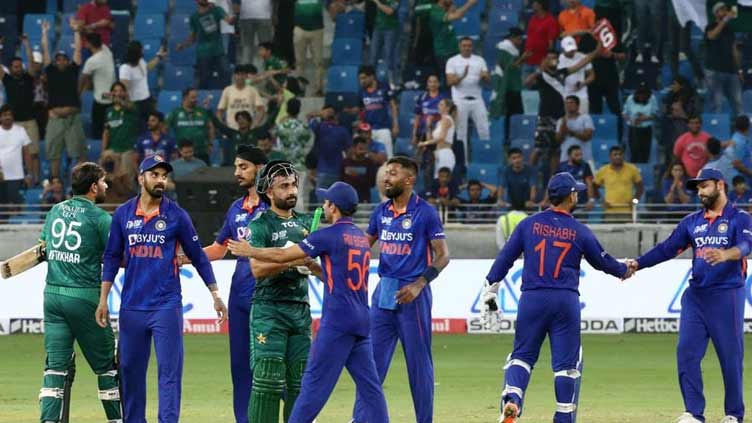FM Bilawal evaluating World Cup participation in India

Cricket
Doubts over Pakistan's participation has meant that schedule of event are yet to be confirmed
(Reuters) - Pakistan's foreign ministry said it is "evaluating all aspects" of the country's participation in this year's 50-overs World Cup in India with bilateral cricket stalled between the South Asian neighbours due to soured political relations.
The two countries have played each other only in multi-team events at neutral venues over the last decade and doubts remain over Pakistan's involvement in the World Cup in October-November.
Pakistan's Bilawal Bhutto-Zardari was among the foreign ministers who travelled to India's Goa last month for a Shanghai Cooperation Organisation (SCO) meeting, becoming the first senior Pakistani leader to visit India in nine years.
Foreign ministry spokesperson Mumtaz Zahra Baloch said Pakistan was of the view that "politics should not be mixed with sports".
"India's policy of not playing cricket in Pakistan is disappointing," Baloch said in Islamabad on Thursday.
"We are observing and evaluating all aspects relating to our participation in the World Cup including the security situation for Pakistani cricketers and we will offer our views to PCB (Pakistan Cricket Board) in due course."
Doubts over Pakistan's participation has meant that the dates and venues for the World Cup are yet to be confirmed with just over three months left before the start of the tournament.
India's importance for the U.S. to counter China and the economic ties between the countries make it difficult for Washington to criticize human rights in the world's largest democracy, political analysts said. Biden rolled out the red carpet for Modi on Thursday.
The only two Muslim women members of the U.S. Congress - Representatives Ilhan Omar and Rashida Tlaib - along with some other progressive lawmakers like Representative Alexandria Ocasio-Cortez, boycotted Modi's address to the Congress on Thursday, citing allegations of abuse of Indian dissidents and minorities, especially Muslims.
U.S. Senator Bernie Sanders said Modi's "aggressive Hindu nationalism" has "left little space for India's religious minorities."
The benefits of the Indian government's policies are accessible to everyone, Modi said. Rights groups have asserted, however, that dissidents, minorities and journalists have come under attack since Modi took office.
India has slid from 140th in the World Press Freedom Index in 2014 to 161st this year, its lowest point, while also leading the list for the highest number of internet shutdowns globally for five consecutive years.
The U.N. human rights office described a 2019 citizenship law as "fundamentally discriminatory" for excluding Muslim migrants. Critics have pointed to anti-conversion legislation that challenged the constitutionally protected right to freedom of belief and the revoking of Muslim-majority Kashmir's special status in 2019 as well.
There has also been demolition of properties owned by Muslims in the name of removing illegal construction; and a ban on wearing the hijab in classrooms in Karnataka when the BJP was in power in that state.
"The protection of the Muslim minority in a majority Hindu India, that is something worth mentioning," former U.S. President Barack Obama, whom Modi calls a close friend, told CNN in an interview aired on Thursday.
"If you do not protect the rights of ethnic minorities in India, then there is a strong possibility that India at some point starts pulling apart," Obama said of what he would have told Modi now.

